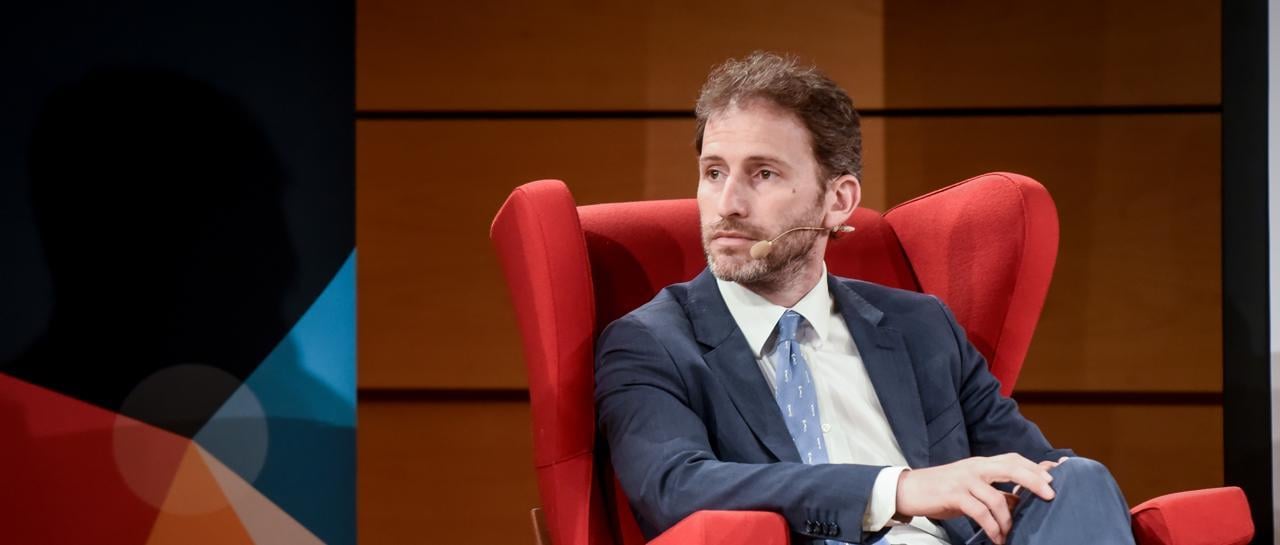Commentary
Casaleggio Jr.’s ‘web democracy’ is a fake democracy
A prominent Italian political operative said the internet will someday replace the parliament. This could be dismissed except that Davide Casaleggio wields significant power and the project of reducing the institutional role of elected assemblies has been ongoing for decades.

Davide Casaleggio—i.e. Casaleggio Jr.—has informed us that in a couple of decades we will no longer need the parliament. Technological innovation will render it obsolete. The network could respond much more quickly and effectively to democracy’s demands. He is not the first, nor probably the last, to prophesize the new kingdom of internet democracy.
In such a kingdom, power is shared by all people with the press of a button. Why delay through the rituals of representative parliamentary democracy when the sovereign people can be called upon to decide on every issue at any time? The question could also be left to a salon debate, if it were not for two very important aspects.
The first is that the statement does not come from a brilliant speaker who wants to shake the sleepy audience, but from a character who has weight in a political subject of government, and perhaps holds the golden share. Evidence of this comes from the fact that a vice president of the Council felt the need to respond publicly at once.
The second is that the project of progressively reducing the weight and institutional role of the representative assemblies has been in place for more than 20 years, and is not showing any slowdown. This is the case, for example, with the mantra of electing the leader with his majority, which has united the center-right and center-left since the transition from proportional to majoritarian in 1993, and has seen the toughest attacks with the electoral laws with majority prizes.
Attempts to consolidate the position of the leader with mechanisms such as blocked lists, or the hypothesis of modifications to the rules on the Parliament-Government relationship, have the same basis. The expedient of the imperative mandate is only the latest in a long series. The design is in the works, especially because the left has abandoned its old institutional culture, suffering on the subject due to a growing hegemony of the right.
Therefore, Casaleggio’s departure is not so much worrying about the possible disappearance of the institution, but about the real likelihood of seeing another reform season begin—one might say—once again to weaken the role and institutional weight of the Italian Parliament.
“No one pretends that democracy is perfect or all-wise. Indeed it has been said that democracy is the worst form of government except for all those other forms that have been tried from time to time.” Churchill said this to the Commons on Nov. 11, 1947, and, against a background of aristocratic disdain, he referred precisely to what Casaleggio did not like: the discussions, the contrasts, the delays, the mediations, the complications of complex mechanisms deriving from voting for representative assemblies.
But it is precisely the 5 Star Movement experience that has demonstrated the limits of the network, the fragility of which has emerged, the permeability to undue and hidden influences and controls, the inability to produce complex mediations and effective syntheses. Instant web democracy is a fake democracy.
The network can be a useful corrective to a policy that lives according to ancient models, but not an instrument that replaces them well. Even if everything were to work at its best according to the Casaleggio model, we would have a daily and permanent dictatorship of the majority. That has nothing to do with democracy. Therefore, we shall fight to ensure that in a couple of decades there is still a strong and representative parliament, and that it is proven that Casaleggio Jr., not parliament, is useless.
Originally published at https://ilmanifesto.it/la-fake-democracy-di-casaleggio-jr/ on 2018-07-25
